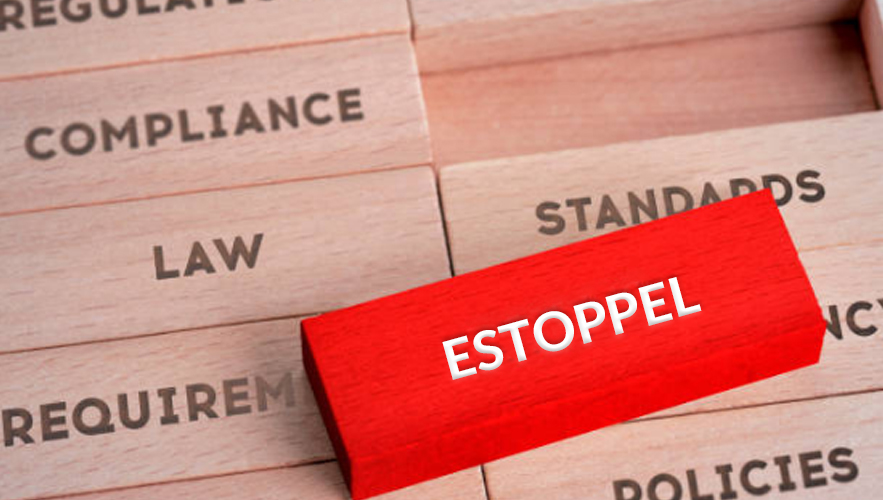ESTOPPEL – Why do we need it?
The word ‘estoppel’ came from French word ‘estoupe’ which in English as ‘stopped’ in law. The term was adopted by the Jurisprudence for the purpose of shutting the mouth of a person who alleged or pleaded or spoken or acted upon truth in one previous occasion and tries to avoid or evade his own allegation or pleading or speech or action with a mala fide (i.e. ill intention).
According to Tamlin’s law Dictionary, “Estoppel is an impediment or bar to a right action arising from a man’s own act; or where he is forbidden by law to speak against his own deed, for by his act or acceptance he may be estopped to allege or speak the truth.”
As per Smith L.C., “An estoppel is an admission, or something which the law treats as an equivalent to an admission, of so high and conclusive a nature that any one who is affected by it is not permitted to contradict it.”
The rule of estoppel is based on the maxim: “Allegans contraria non est audiendus” A person alleging contradictory facts should not be heard. It is based on the principle that it would be most inequitable and unjust that if one person, by a representation made or by conduct amounting to a representation has induced another to act, the person who made the representation should be allowed to deny or repudiate the effect of his former statements, to the loss and injury of the person who acted on it.
Section 115 of the Indian Evidence Act, 1872 lays down the principle of estoppel as a rule of evidence. It provides that “when one person has, by his declaration, act or omission, intentionally caused or permitted another person to believe a thing to be true and to act upon such belief, neither he nor his representative shall be allowed, in any suit or proceeding between himself and such person or his representative to deny the truth of that thing“.
The principle of doctrine of Estoppel is stated under Section 115 of the Indian Evidence Act, 1872. Estoppel is based on the principle that it would be unjust, if a person intentionally by conduct or in any other manner has induced other person to believe and act upon such a representation, neither he or those representing can in a subsequent Court proceedings deny the truth. The accused does through omission, act or declaration.
The idea that a man must keep his word and must be responsible for the consequences of his conduct when other men have trusted him is accepted by all civilizations. As law developed, this was recognized as a part of the legal system even though the same is not codified as such. Thus estoppel was used by the courts for preventing injustice in appropriate fact situations.
Estoppel is an equitable relief and where it is operated by cheating another of his rightful claims it will not be effective help to him to deprive another of his rights.[1]
[1] Auling and Odgers JJ, K. Kotayya (dead) and another Defendant. – Appellant, AIR 1924 Mad. 177

